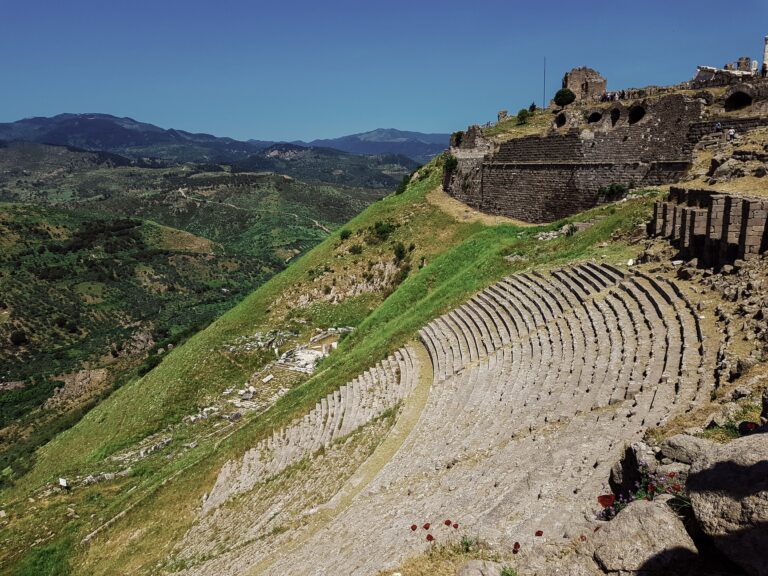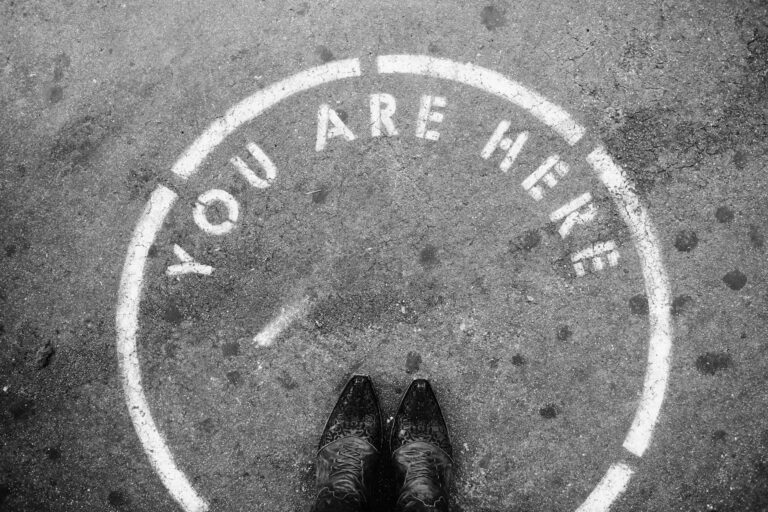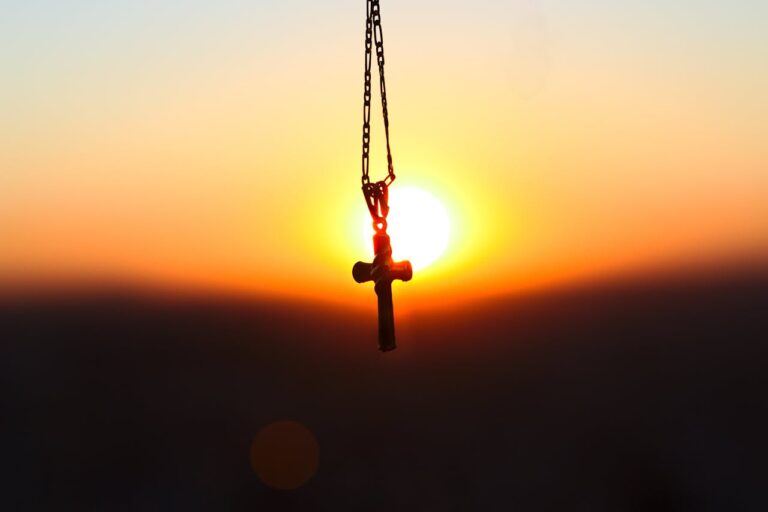Do dogs go to heaven?
It’s not an idle question, because at the heart of the question of whether dogs go to heaven is the question of what we mean when we talk about going to heaven. So, what is going to heaven anyway? What actually happens when we die? And is there a place for dogs in the afterlife?
Before exploring the biblical teaching about end times, I should take a moment to note the goodness of dogs. Dogs are inherently good creatures, very good. Dogs love unconditionally. They are faithful. They accept us. They don’t care how we look, how much we make, or how sick we might be. They just love us. They would die for us. In fact, they love us so much that they prefer us over other dogs. Their whole lives are devoted to us. And so, no matter how many times you walk into your house throughout the day, each time you’re greeted like a king.
Now no one is saved by the merits of their works, of course. But, were it thus that some were saved by good works, wouldn’t dogs necessarily go to heaven?
But setting aside our dogs for a moment, let’s ask a bigger question. What do we mean when we talk about going to heaven after we die?
The stock image of going to heaven in the West is flat. It goes something like this. You live a good life, then when you die you shed your body forever, and your soul goes to heaven where it joins a very long disembodied church service, one that lasts for eternity.
This depiction of heaven leaves out so many important truths that it is actually misleading.
“The stock image of going to heaven in the West is flat.”
Before we get into these, let’s first observe that there is no passage of Scripture that uses the phrase go/going to heaven when we die. I don’t want to make too much of this, because the souls of faithful believers do go to paradise (Luke 23:43) or Abraham’s bosom (Luke 16:22), or to be with Christ (Philippians 1:23) when they die, which is indeed heaven. I only critique the phrase going to heaven because when used by itself it leaves out so much, namely, the second coming, the resurrection of the body, the day of judgment, and the new creation. These are not small doctrines in the Bible!
And two of these doctrines especially help us answer our original question about dogs: the bodily resurrection and the new heavens and new earth. So let’s examine these.
The Resurrection of Our Bodies
The doctrine of the resurrection of our bodies is central to the teaching of the gospel, and it is much greater than the mere platonic view of the immortality of the soul. When Christ returns, our bodies will be raised from the dead, reunited with our souls, to live again in a new creation. The flat view of many in the West—that we discard our bodies forever so our souls may flit about the clouds—neglects this central doctrine of the Bible: the bodily resurrection.
Now some might say that it is our souls that are resurrected, but this is a non sequitur: to resurrect means to bring back to life. Since our souls never die, they cannot be resurrected. It is our bodies that die, so it is our bodies that are resurrected. It was Lazarus’s body that was raised from the dead—still wrapped in his burial clothes (John 11:43-44). At the moment of Jesus’ death, others were resurrected in bodily form: “The earth shook, the rocks split and the tombs broke open. The bodies of many holy people who had died were raised to life” (Matthew 27:51-52, NIV). In the resurrection of Ezekiel 37—the valley of dry bones—it was bodies that came back to life. The biblical doctrine of the resurrection is that our bodies will come back to life.
This is clear in a number of texts. “[H]e who raised Christ from the dead will also give life to your mortal bodies because of his Spirit who lives in you” (Romans 8:11, NIV). “[W]e ourselves, who have the firstfruits of the Spirit, groan inwardly as we wait eagerly for our adoption as sons, the redemption of our bodies” (Romans 8:22-23, NIV). “Our citizenship is in heaven. And we eagerly await a Savior from there, the Lord Jesus Christ, who, by the power that enables him to bring everything under his control, will transform our lowly bodies so that they will be like his glorious body” (Philippians 3:20-21, NIV)
“He who raised Christ from the dead will also give life to your mortal bodies because of his Spirit who lives in you.”
The view that going to heaven is all there is neglects a great truth: we are destined not merely to float soulfully on clouds in an eternal church service, but instead we are destined for a return to wholeness: souls and bodies reunited in a new creation that’s much more than clouds and harps.
The doctrine of the bodily resurrection is good news, for it demonstrates that the Christian faith is not just a metaphor or a platonic abstraction. It is real and tangible, and it gives us access to a new heaven and earth where we are whole again to enjoy a new Garden of Eden. Christ’s redemption of our bodies is very good news.
And this doctrine of the bodily resurrection is grounded in the literal resurrection of Jesus’ body after the crucifixion. Jesus was literally and bodily raised from the dead. He walked, he ate, and he still bore the scars of the crucifixion. Again, this is good news because it saves the Christian faith from becoming mere myth or allegory. The Christian faith is grounded in a historical reality.
In fact, Jesus’ bodily resurrection is a central doctrine for the gospel. Paul says this resurrection is of “first importance: that…[Christ] was raised on the third day according to the Scriptures” (1 Corinthians 15:3-4, NIV). The church in the book of Acts often led their preaching with the doctrine of the resurrection of Christ’s body, even to the consternation of the Greeks (who, by the way, already believed in the immortality of the soul).
“Jesus’ bodily resurrection is a central doctrine for the gospel.”
Indeed, the bodily resurrection of Christ is so important that, according to Paul, Christ is still embodied even now (hard as that is for us to imagine): “For in Christ all the fullness of the Deity lives in bodily form” (Colossians 2:9, NIV). Notice that Paul doesn’t say that the fullness of Deity used to live in bodily form; he says it currently lives—present tense. Christ continues to have a body, and at the resurrection, we will too.
So the gospel does not teach us that upon our deaths our bodies are forever discarded and our souls play harps on clouds. Rather, the Bible teaches us that our souls go to heaven only to wait for the resurrection, at which point our bodies will be raised back to life to face God in judgment:
“Do not be amazed at this, for a time is coming when all who are in their graves will hear his voice and come out—those who have done what is good will rise to live, and those who have done what is evil will rise to be condemned.” (John 5:28-29, NIV)
The New Heaven and New Earth
Now, the second doctrine important for answering our original question is that of God’s future establishment of a new heaven and a new earth. In the same way that our bodies are raised from decay and mortality, so a new creation will be raised from the ruins of the old at the Second Coming of Christ. This, too, is taught in many of the pages of the Bible.
We start with the Old Testament Prophets. The Prophets of old speak of judgment and sin, yes, but they also frequently predict a fantastic new creation to some—a renewed, restored, resurrected creation. “See, I will create new heavens and a new earth. The former things will not be remembered, nor will they come to mind” Isaiah foretells (Isaiah 65:17, NIV). Amos promises a coming land ridiculously abundant: “‘The days are coming,’ declares the LORD, ‘when the reaper will be overtaken by the plowman and the planter by the one treading grapes. New wine will drip from the mountains and flow from all the hills’” (Amos 9:13, NIV).
“The Prophets of old speak of judgment and sin, yes, but they also frequently predict a fantastic new creation yet to some—a renewed, restored, resurrected creation.”
Jeremiah goes further:
“‘I will build you up again, and you, Virgin Israel, will be rebuilt. Again you will take up your timbrels and go out to dance with the joyful. Again you will plant vineyards on the hills of Samaria; the farmers will plant them and enjoy their fruit. See, I will bring them from the land of the north and gather them from the ends of the earth. Among them will be the blind and the lame, expectant mothers and women in labor; a great throng will return. They will come with weeping; they will pray as I bring them back. I will lead them beside streams of water on a level path where they will not stumble, because I am Israel’s father, and Ephraim is my firstborn son….They will come and shout for joy on the heights of Zion; they will rejoice in the bounty of the LORD—the grain, the new wine and the olive oil, the young of the flocks and herds. They will be like a well-watered garden, and they will sorrow no more. Then young women will dance and be glad, young men and old as well. I will turn their mourning into gladness; I will give them comfort and joy instead of sorrow. I will satisfy the priests with abundance, and my people will be filled with my bounty,’ declares the LORD.” (Jeremiah 31:4-14, NIV)
These promises are scattered throughout the Old Testament Prophets, and they have not yet been fulfilled. This is true even though many of Israel’s land promises were fulfilled in Joshua’s time (Joshua 21:45).
“These promises are scattered throughout the Old Testament Prophets, and they have not yet been fulfilled.”
The Old Testament Prophets, however, wrote centuries after Joshua, and they predicted a much more spectacular land, one that flows with abundance, joy, and peace. And these promises have not yet been fulfilled, but they will be, because God never breaks a promise. These prophecies await the Second Coming—they describe the new creation God is bringing, called in Revelation a “new Jerusalem” and “a new heaven and new earth” (Revelation 21:1).
The New Testament simply assumes that these Old Testament promises will be fulfilled at the Second Coming. So Jesus actually uses a term meaning “second Genesis” to describe our resurrected life: “Truly I tell you, at the renewal of all things, when the Son of Man sits on his glorious throne, you who have followed me will also sit on twelve thrones, judging the twelve tribes of Israel” (Matthew 19:28, NIV). The NIV’s renewal of all things is from a Greek term literally meaning “Second Genesis” or “Second Beginning.”
Jesus is referring to the joyful promises of a new creation found in the Old Testament Prophets and applying them to us. In Matthew 17:11-12, Jesus borrows from the Old Testament Prophets to speak of a restoration of all things: “To be sure, Elijah comes and will restore all things.” This language is again taken from the Old Testament Prophets, who had frequently promised such a restoration. For example, “They will rebuild the ancient ruins and restore the places long devastated; they will renew the ruined cities that have been devastated for generations” (Isaiah 61:4, NIV; see also Malachi 4:5-6). So, Jesus assumes that the glorious promises of a new creation still await us, at the resurrection.
“Jesus assumes that the glorious promises of a new creation still await us, at the resurrection.”
The teaching of the early church also reflects the promises of the Prophets. Peter preached in Acts 3:21 (NIV), “Heaven must receive [Jesus] until the time comes for God to restore everything, as he promised long ago through his holy prophets.” Here Peter explicitly says that his eschatology came from the Old Testament Prophets. Paul confirms this when he says at the final revelation, “The creation itself will be liberated from its bondage to decay and brought into the glorious freedom of the children of God“ (Romans 8:19-21, NIV). Peter later speaks of a “new heaven and a new earth” (2 Peter 3:13), a phrase he got directly from Isaiah’s prophecy about the world to come (Isaiah 65:17; 66:22).
And Revelation has many descriptions of this end-time paradise: “To the one who is victorious, I will give the right to eat from the tree of life, which is in the paradise of God” (Revelation 2:7b). Reflecting the promises of the Old Testament, this restored creation has a river running down main street, and like the Garden of Eden, has the tree of life in it (Revelation 22:1-2). There are crops in this restoration—as Amos had prophesied. These crops heal the nations.
In the new creation, the curse of the Garden of Eden is removed: there are no more thorns and thistles, no sweat of the brow, and no more pain (as in that of childbirth). Sorrow, sickness, death or dying are no more (Revelation 22:3). There is peace, prosperity, and righteousness in this new heaven and earth. It is genuinely the second Genesis Jesus spoke of and the Prophets predicted.
“There is peace, prosperity, and righteousness in this new heaven and earth.”
Even more telling, Revelation refers to this new creation as the new Jerusalem—a term that links Revelation’s description of end times to that of the Old Testament Prophets, who had promised the same new Jerusalem. “The moon will be dismayed, the sun ashamed; for the LORD Almighty will reign on Mount Zion and in Jerusalem, and before its elders—with great glory,” Isaiah prophesies (Isaiah 24:23, NIV).
In fact, many of the terms John uses in Revelation to describe the “new heaven and new earth” come from the Old Testament Prophets. And John elaborates: the new Jerusalem has walls, gates, and streets—all made of gold and precious material. Its size is immense. The glory of God is found within it, and the nations will bring their splendor to it (Revelation 21:24). And the promise of both the Old Testament and the New is the same: “Those who are victorious will inherit all this” (Revelation 21:7, NIV).
So, What Happens When We Die?
So the flat view that suggests we die, forever discard our bodies, and our souls go to heaven to flit among the clouds misses the beautiful story of the scriptures. In Scripture, we die and our souls go to heaven, but they go there to wait. “How much longer?” they cry (Revelation 6:10, NIV). Then God sends Jesus back in a glorious Second Coming, “with a loud command, with the voice of the archangel and with the trumpet call of God” (1 Thessalonians 4:16, NIV).
Our bodies will rise from the graves, new, celestial, and immortal (1 Corinthians 15:35-49). We shall meet Jesus in the air. All humanity, great and small, will stand before the judgment bar of God: “and books were opened. Another book was opened, which is the book of life. The dead were judged according to what they had done as recorded in the books” (Revelation 20:12, NIV). Those who lived in opposition to Christ go to a place Jesus calls hell. But those redeemed by his blood go to a new Jerusalem, a renewed heaven and earth, a second Genesis—a place where the curse is removed and all of the beautiful prophecies of the Old Testament finally come true. “See,” says the Lord, “I am doing a new thing” (Isaiah 43:19, NIV). “I am making everything new!” says the one seated on the throne (Revelation 21:5, NIV).
And that is the news of what happens when we die! And very good news it is.[1]
A Restoration of Creation
But there is another text that reflects this coming restoration of creation which I have not yet cited. This text is pertinent to our original question. It is found in Isaiah 11:6-9 (NIV):
“The wolf will live with the lamb, the leopard will lie down with the goat, the calf and the lion and the yearling together; and a little child will lead them. The cow will feed with the bear, their young will lie down together, and the lion will eat straw like the ox. The infant will play near the cobra’s den, the young child will put its hand into the viper’s nest. They will neither harm nor destroy on all my holy mountain, for the earth will be filled with the knowledge of the LORD as the waters cover the sea.”
Isaiah says that at the restoration of all things, even the animals will find peace, living in harmony with each other—like it was in the Garden of Eden.

Now, my veterinarian friends tell me that every modern dog is a descendent of the wolf. And in Isaiah 11, the wolf is present in the new heaven and new earth. So, though it doesn’t matter to our faith, can’t we say that the new creation will include such creatures as dogs—since the new creation is a sort of second Eden? After all, the new creation has an abundance of crops, of wine, of flocks and herds. It is a liberation from the old creation’s bondage; it gives us new, celestial bodies; and it has streets, gates, rivers, and trees. Couldn’t it be that the new heaven and earth also renews the animals of Eden, including our dogs?
“It is a liberation from the old creation’s bondage; it gives us new, celestial bodies; and it has streets, gates, rivers, and trees.”
Yes, I believe dogs will join us at the new creation. At least I’m hopeful about it. After all, wouldn’t a second Genesis reflect all of the goodness of the first?
So, yes, I think dogs will join us at the new creation, on the basis of such texts as Isaiah 11—and perhaps even our own beloved dogs will be restored to us. Maybe in the new creation our furry friends will run up to us—with wagging tails in eternal joy. Either way, what a time it will be when we walk streets that are paved of gold so pure it is transparent. Where the curse is finally lifted. And where God himself will be among us, as he was in the Garden of Eden.
What joy!
Afterword
Now, there is one question I haven’t addressed.
You may already have thought of it.
Here it is:
Do cats go to heaven?
My answer: I prefer not to stretch the evidence.
[1] For clarity’s sake, let me say that my eschatology is amillennial. I do not believe the thousand year reign is a literal event here on earth, I do not believe Jesus will physically rule on this earth, and I do not believe in a “rapture.” But I do believe in the prophesies of the Old Testament, many of which wait to be fulfilled.













One Response
This article is fantastic! The church in the West needs to have a more robust theology of the New Heavens and New Earth.
Growing up, I definitely thought that heaven was an eternal church service full of disembodied spirits floating around in some ethereal realm, which sounded terrible to me lol. It wasn’t until I heard a sermon my sophomore year of college from Rev 21–22 that I finally found out about what heaven is really like. I have studied it intensely ever since for well over a decade now. So I appreciate everything in this article!
As far as dogs go, Randy Alcorn makes a pretty good case for dogs in heaven, and John Burke cites evidence for it in his book “Imagine Heaven.” That being said, no good case has yet to be made for cats lol.